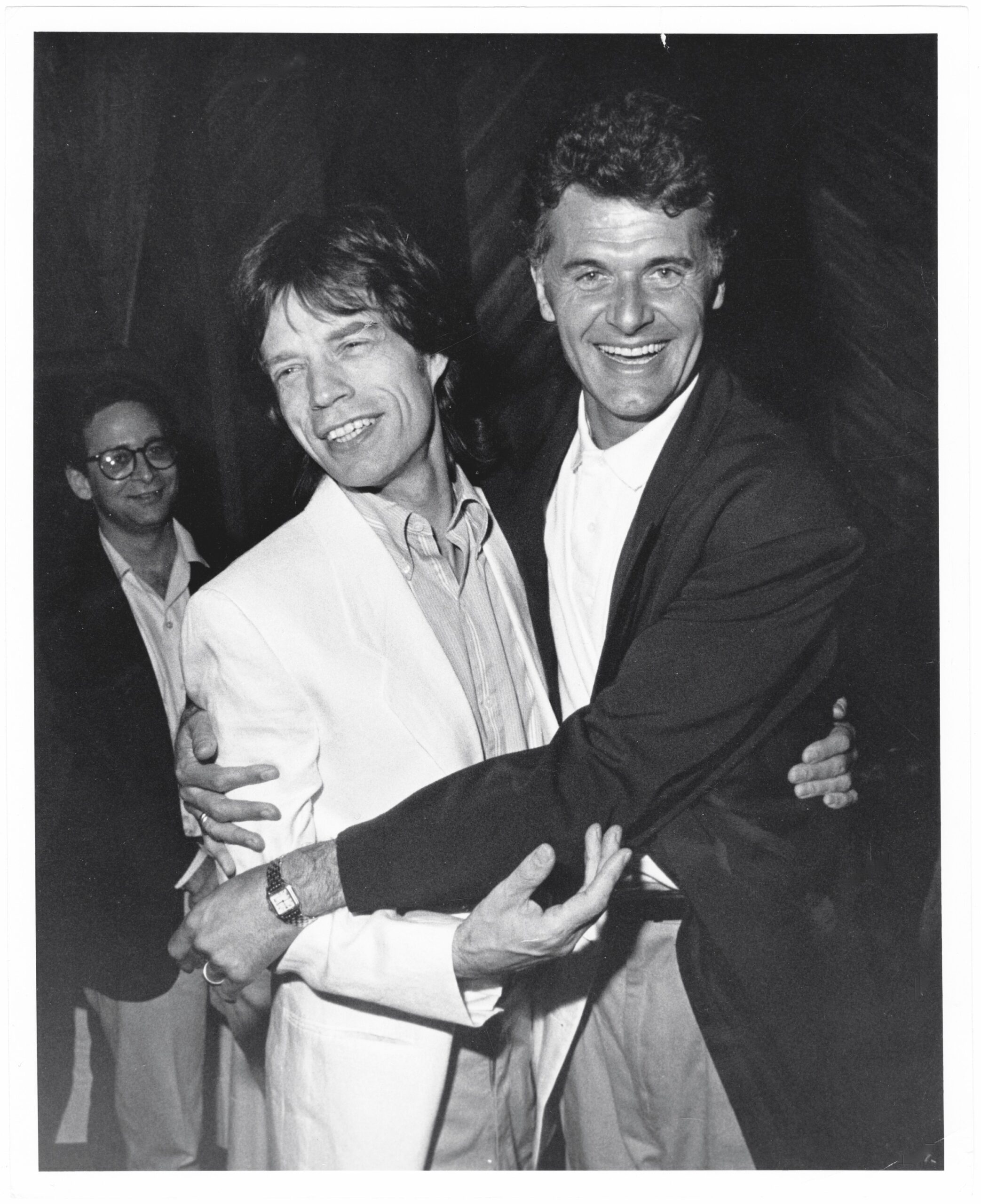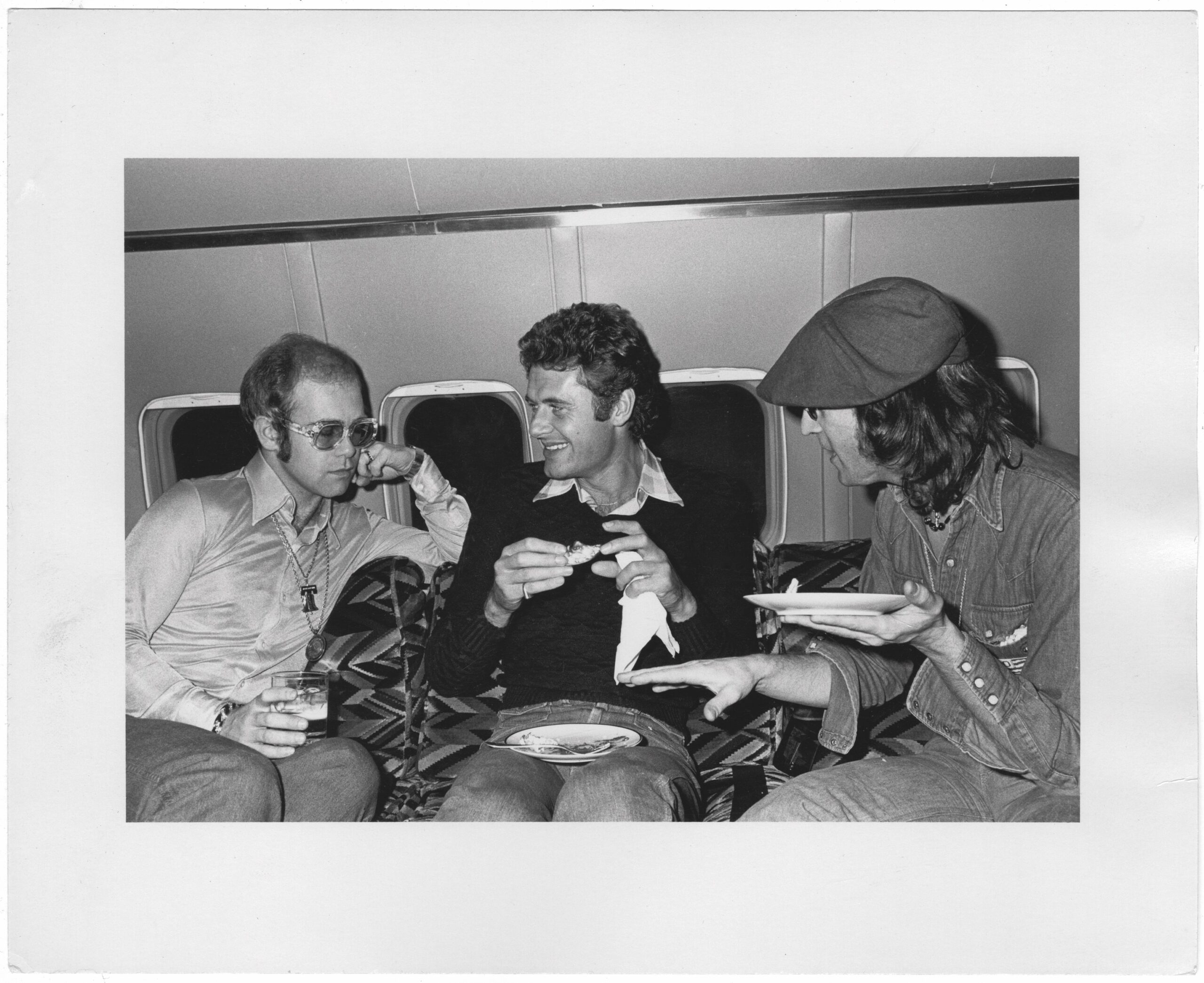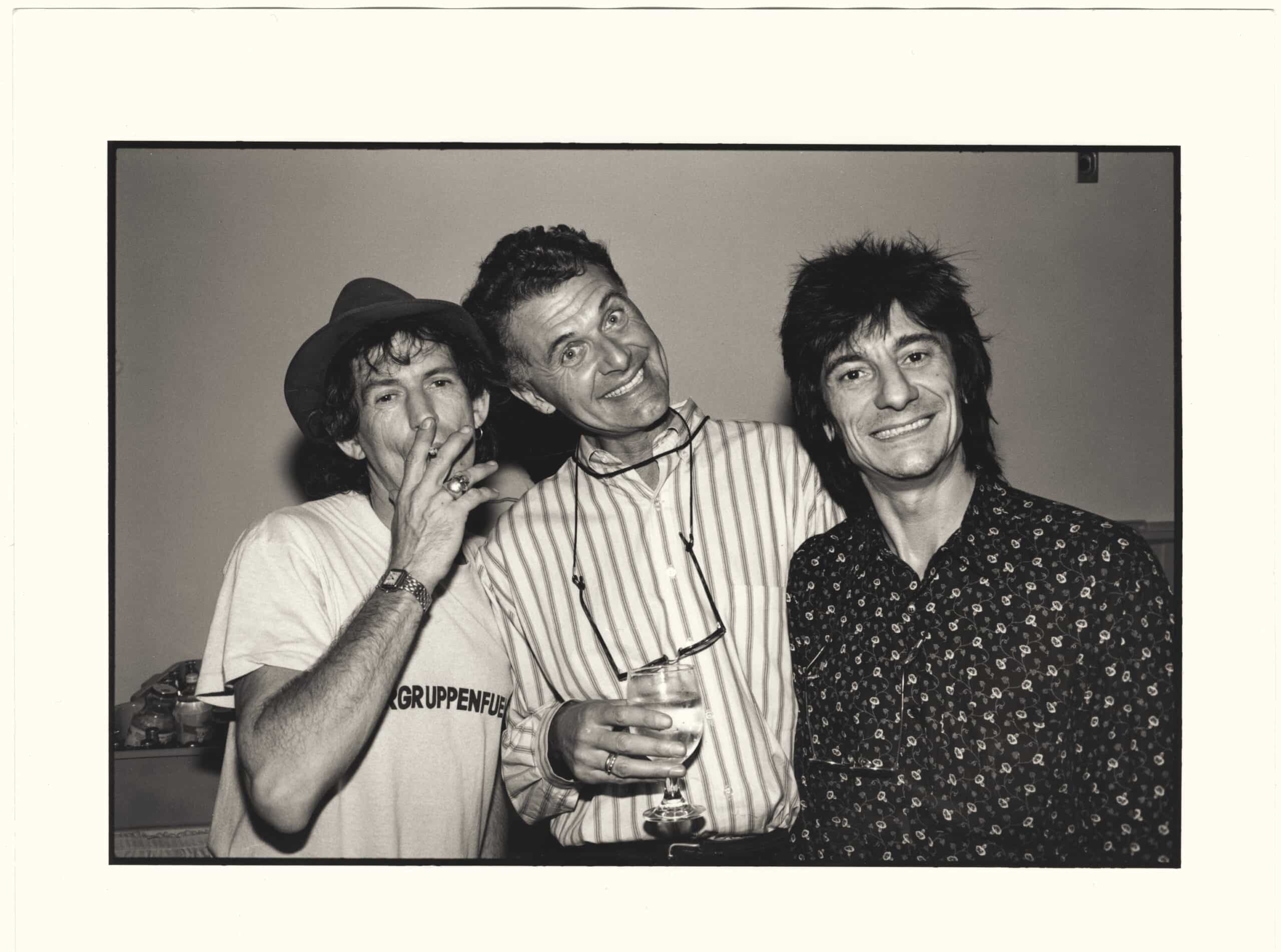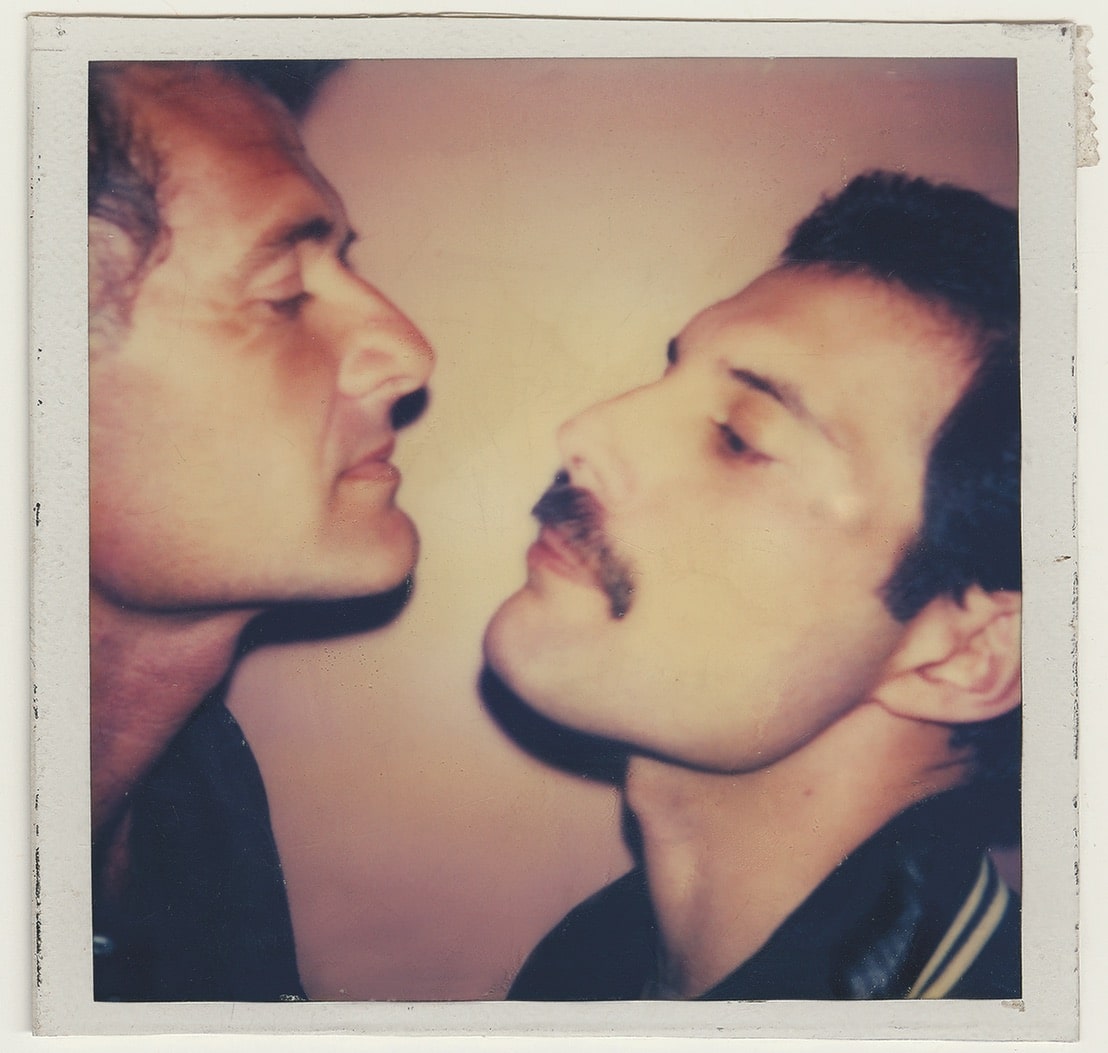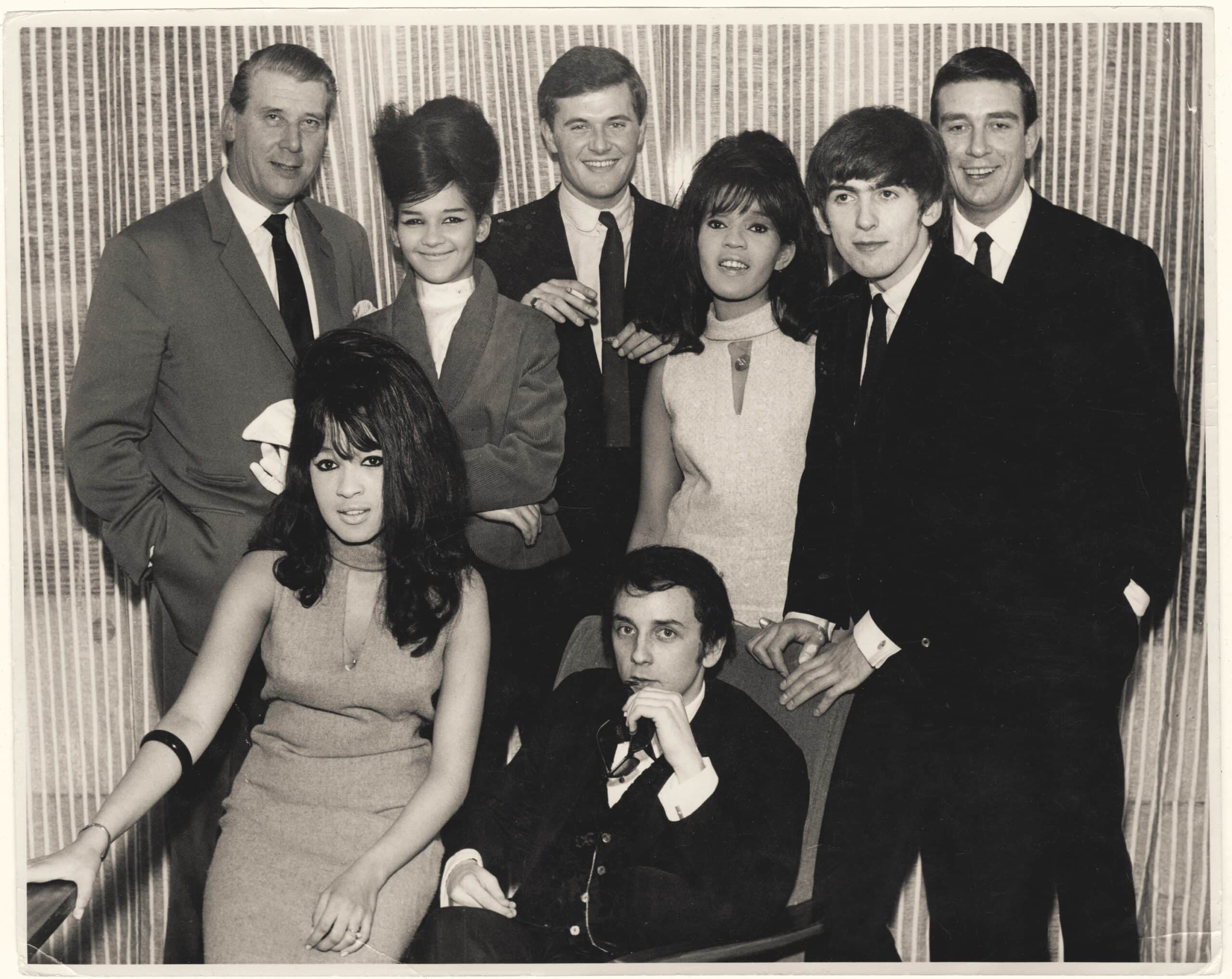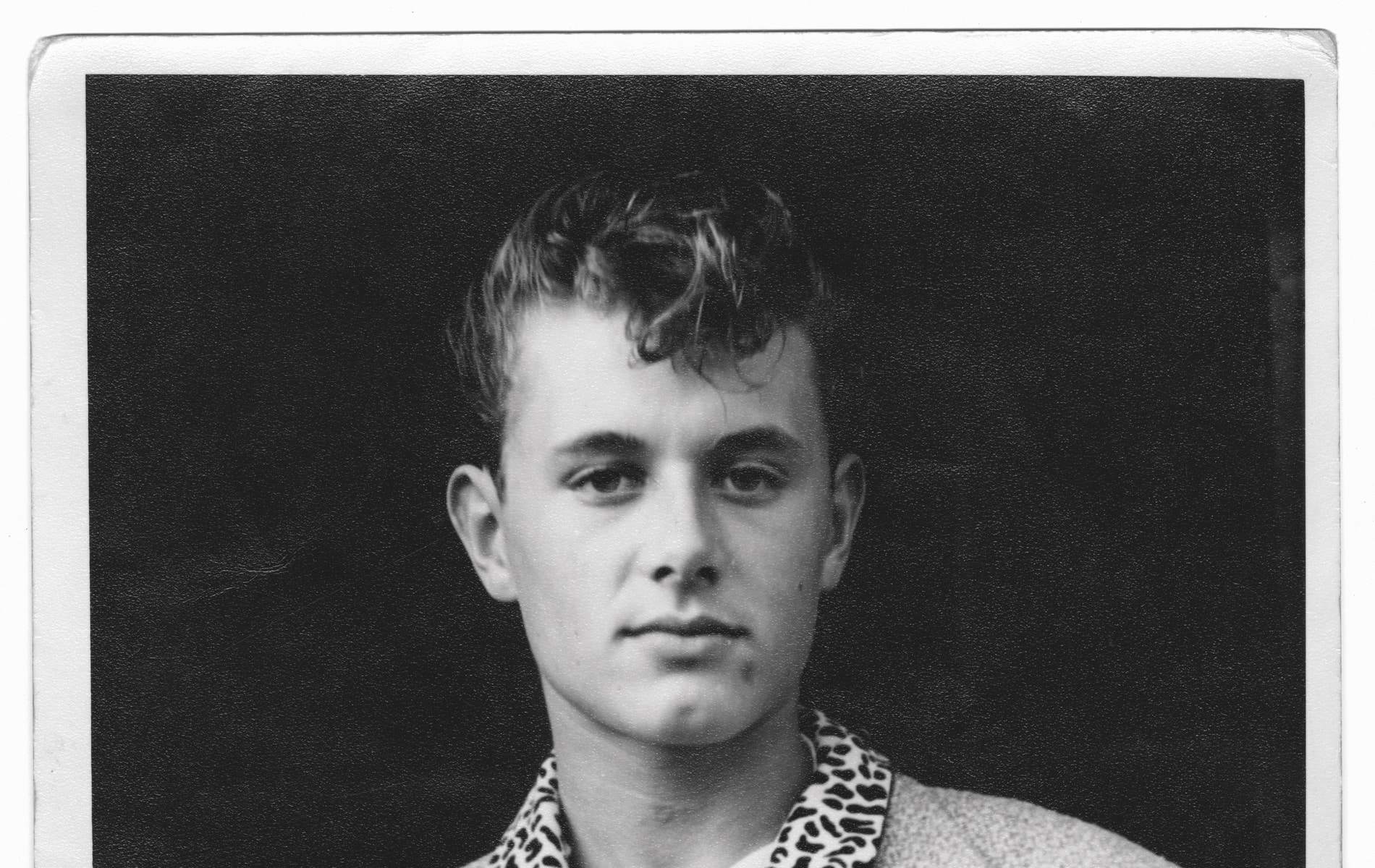
VIE_Magazine_AUG23_article_Tony_King_HERO
Tony King at age fifteen
A Rock’n’Roll Tastemaker
Celebrating the Legendary Tony King
By Anthea Gerrie | Photography courtesy of Tony King
He was just a starstruck teenager with no qualifications when he inveigled his way into a record company. Yet within a few years, Tony King was hanging out with the Beatles, Roy Orbison, and Elton John and would make six world tours with the Rolling Stones. The backroom boy with star quality of his own also found himself at the heart of some high-profile personal dramas, witnessing the pain of a separated John Lennon and Yoko Ono and holding Freddie Mercury’s stone-cold hand as the singer lay dying.
King, who has waited until now to spill the beans of a lifetime of close encounters in his book The Tastemaker: My Life with the Legends and Geniuses of Rock Music, is the product of an age when stars rubbed shoulders with and confided in the unknowns who existed to serve them. At eighty-one, he is old enough to have known Keith Richards before he got into drugs—the guitarist reprimanded him for smoking a spliff with his girlfriend—and to have inspired the unknown, inconspicuous wannabe who became Elton John with his flamboyant style—”I could tell Reg was quite taken by my appearance,” King remembers.
King’s glittering career as a record promoter, minder, and creative director precedes Swinging London, when it was routine for cocky youngsters with a good eye and a good ear to ditch a formal education to leap feetfirst into a fashion or music career. But back in 1958, students who had made it into one of England’s elite academic secondary schools did not often quit without graduating. The Elvis-obsessed King did, however, when he turned sixteen and took a train to London. And his bravery paid off: he got promoted from a junior job at Decca Records by impressing an executive’s wife with knowledge of the Picasso on her wall—and having the wits to deny he was gay in the years before homosexuality was decriminalized.
Good-looking, sharp as a tack, and undeterred by what his flamboyant wardrobe might signal—“as well as my love beads, I had a thing for antique silk scarves,” he recalls—King’s style, confidence, and fearlessness aided his sprint up the ladder from record sleeve production to looking after artists in ways that would defy a job description today. He once leaped out of a taxi to flag down a car Roy Orbison had spotted and decided he wanted to buy. “He had a thing about classic wartime German Mercedes cars,” King explains of the famous fellow passenger who had just spotted his dream car pulling into London traffic. Having successfully persuaded the driver to stop, the deal was done—no wonder Orbison tried to lure King to Nashville to work for him. But the young fixer balked at his prospects as a gay man in the hetero home of country music. “I failed to sort out my visa, and the opportunity came and went,” he relates.
When he did leave Decca—to join the Stones, still on the rise—it’s a coincidence he helped their manager get his own coveted automobile. “What with that and the Roy Orbison story, it sounds like I was some kind of car dealer, but the two events weren’t connected,” he says of helping Andrew Loog Oldham, the Stones’ manager, jump up a long waiting list for a Rolls-Royce.
Despite his famously good ear, King did not really understand the Stones when he first saw them playing at a tiny, half-empty London club. “Compared to some of the gigs I’d seen with the Beatles with packed auditoriums going crazy, it all felt a bit flat.… The Stones had something, but I still didn’t understand what it was,” he recalls. Yet King and Oldham, much younger than other music business execs at twenty-three, hit it off to the extent that when the manager played him a few bars of “Satisfaction,” he decided it was time to jump on board.
Keith Richards, still in his pre-marijuana days, was sweet and friendly to Oldham’s new sidekick, who was less impressed with falling angel Brian Jones. “Just before he died … I remember thinking he didn’t look so good anymore. He seemed a bit sad, a little run down,” says King. Charlie Watts and his wife became two of King’s dearest friends after the fixer saved their cat’s life by finding a miracle-working vet to save her shattered leg after another recommended putting her down. Louise the rebuilt moggy never forgot, coming to sleep on her savior’s bed whenever the Wattses invited King to stay at their farmhouses in Sussex and France.
King also gave a leg up to an unknown Elton John when he moved on to work for George Martin’s production company. “Because I worked at AIR, I was able to get Reg, as he was known then, some session work,” he remembers of the artist whose piano-playing wowed producers in the studio. The youngster admired King to the extent that when he became Elton John, he hired his inspiration as VP at his record label and later as creative director. It was Elton who coaxed King, who left AIR to recover from a broken heart, into returning from exile in the countryside. “‘Come back, Tone,’ he wrote. ‘Come back to London. We miss you.’ I cried when I read that,” King says of what he calls “the most beautiful letter” from the man who has now been his friend for sixty years.
As head of A&R at Apple after the Beatles split, King worked his magic on George Harrison’s first solo album. “It was lovely to see (and help) George step out of the shadows,” he states. King finally realized his lifelong dream of getting to America in 1972 with George and Ringo, close friends from the early days. When their manager, Allen Klein, asked why he wanted to go, King replied simply, “Because it is the soundtrack of my life. Everything I have ever loved is American.” Soon after arriving, he finally got to see Elvis play at Madison Square Garden. “Sixteen years after I first heard ‘Heartbreak Hotel,’ I got to see my idol,” he recalls.
In New York, King discovered an unimagined libertarian gay lifestyle. “I took the time to go to the Continental Baths, and it was like stepping into a different world,” he says. But first, LA would draw him with a major career move, managing John Lennon with Yoko’s blessing during the singer’s troubled “lost weekend” period. He discovered the soft side of the Beatle who had intimidated him when they first met—“he could be very cutting,” King remembers—and had coffee with a weeping Yoko, who was clearly missing John. He had a ringside seat for the experimental separation that led to the couple’s reconciliation. And although it required extreme interventions from King—like muscling his misbehaving charge back to his hotel room after a rampage through Las Vegas and cleaning up the Bel Air mansion he had brokered for Lennon as an LA base after the singer trashed it—his efforts were rewarded. “He gave me a picture of Marilyn Monroe by Andy Warhol [with] a handwritten note: ‘To Tony with love from one of your problems, John.’ It remains one of my most treasured possessions,” says King of the iconic print that takes pride of place on the wall of his London flat.
He was close enough with Yoko to get high on magic mushrooms with her back in New York, breakfasting with the couple in the Dakota before Lennon cut ties with him during his cocooning period as a househusband. King admits that action hurt him at the time. But there was a surprise name-check in a BBC interview just hours before the shock of the ex-Beatle’s assassination. “We have a mutual friend, Tony King,” Lennon said when asked how he knew Elton John, King recalls. “The fact he described me as a friend the day before his death means everything.”
Elton remains his closest friend, the one to whom he still speaks nearly every day and with whom he’s enjoyed adventures like going for cocktails with Princess Margaret, visiting Mae West in her apartment, and socializing backstage with Frank Sinatra. After receiving his first royalty check, the singer bought his mentor a Cartier ring. Later, King became the executive vice president at Elton’s Rocket Records before moving to New York as head of disco promotion for RCA.
King’s celebrity-packed address book was cited as the secret of Studio 54’s success. However, the cost of his New York period was high, taking him to the epicenter of the emerging AIDS epidemic. He explains, “It was impossible to get away from the effects.… You’d see it out on the streets. The thinness of people … ghostly skeletons. Those with lesions and marks. And the yellow skin, that sallow, jaundiced, haunted look.
Elton remains his closest friend, the one to whom he still speaks nearly every day
“Where once my diary was full of drinks and dates and club nights, now I caught up with friends in hospital beds … and later at memorial services.”
King, who only discovered in 2005—by which time it was no longer a death sentence—that he was HIV-positive himself, confesses, “The number of friends I lost over this period and would continue to lose over the years that followed broke my heart then and breaks my heart still.” They included Freddie Mercury, who called for King to come and see him in London as he succumbed to AIDS. They would watch Oprah together, and King insisted on buying furniture for his old friend’s new home in Paris. But King only realized Mercury was about to die when he rushed across the Channel to see him for what turned out to be the last time in November 1991. “I lay on the bed with him and held his hand. He was just skin and bones. And stone cold. I realized he was going to go.” Of all the gay friends he watched die, King says, “Freddie was the bravest … right at the end, his spirit was still there.”
Robust enough to live with HIV for twenty-five years, King has had creative oversight of Elton’s lengthy farewell tour and his Las Vegas residency. Even a shocking diagnosis of Parkinson’s disease in 2021 might not have stopped King in his tracks had the death of his dear friend Charlie Watts not struck a hammer blow the same year. “We were family—I was godfather to his daughter and granddaughter…. We’d laughed and messed about together all over the globe.” But at a memorial event in Soho, close to that first club where an unimpressed King had first witnessed the rough and ready Stones, it was Mick Jagger who convinced him that his life would never be over until it was over.
“I told Mick I had been diagnosed with Parkinson’s…. ‘Oh well,’ he said, ‘I guess that just means we’ll have to have a slow dance.’”
— V —
The Tastemaker: My Life with the Legends and Geniuses of Rock Music by Tony King is published by Faber and is now available as an audiobook. Hardcover is available for preorder from major booksellers.
Share This Story!
KEEP UP WITH THE LATEST STORIES FROM VIE



